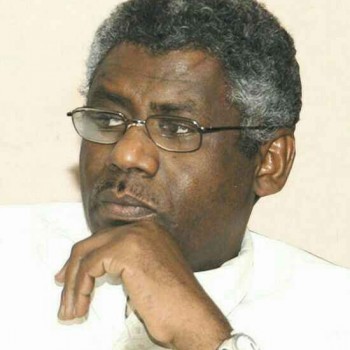How Should We Respond to the UAE’s Aggression? (1)

As I See
Adel El-Baz
1
What prompted me to write this article is the deep frustration I’ve felt for a long time. A group of writers—whom we used to trust for their understanding and analytical skills—have been engaged in relentless noise about the nature of Sudan’s response to the UAE’s aggression. Some have been swept away by the blind rage of social media mobs, while others simply don’t know how to respond or what to do. Unfortunately, some of our state leaders fall into the latter category.
2
The current proposition is that we respond to the UAE politically, diplomatically, legally, economically, and through the media. I completely rule out a military response, for reasons that need detailed explanation. But how should we respond? Should it be through the foolishness and farce we’ve been displaying in our current political, legal, and economic responses? Or are there wiser and more effective ways than the chaos we’re currently engaged in?
Politically:
It would be best to confront the UAE’s aggressive actions by strengthening and unifying the internal front to condemn these acts. We must present a united stance from the Sudanese people—across all parties, sects, and tribes—against this aggression launched by the UAE’s leaders against Sudan. Yes, the leaders of the UAE, so they realize that Sudan’s issue is not with the Emirati people, whom we love, but with their current leadership that has attacked us without cause.
We must carefully craft our political messaging, as Qatar did during the blockade imposed on it. The Qataris wisely differentiated between the leaders of the blockade and the citizens of the Gulf states from the very beginning. Their media messaging targeted only the leaders, never the people of the countries that blockaded them. Even at the height of the crisis, Gulf citizens were welcomed in Doha, their rights and assets preserved, and no harm came to any individual.
Presenting a unified Sudanese position against the aggression must be visible in media coverage, public events, and protests. This is the necessary and impactful political message.
Diplomatically:
There are three fronts:
Regional organizations: African Union, IGAD, Arab League.
International organizations: UN Security Council, United Nations, Human Rights Council, legal bodies.
Influential African countries involved in the internal conflict.
Some achievements have been made in these diplomatic arenas, but much work remains.
What needs to be done diplomatically? We must contain the UAE’s harmful activities and blatant interference in a region outside its geographic domain, empowered by its financial influence over regional organizations.
What to do?
On the regional level, Africa must be mobilized against the UAE’s harmful interventions—many African countries have suffered from its negative meddling. There are clear examples: Libya, Somalia, Sudan, Guinea.
African organizations were originally founded to protect the continent from external aggression and to stand in solidarity against invaders—whether wearing turbans or berets.
The second front involves international organizations: the Security Council, the UN, justice and human rights bodies, etc. The UAE wields significant influence in these arenas due to the vast interests connecting it with key global players. Its wealth allows it to exert considerable international pressure.
To counter the UAE’s influence on these global actors, we need three tactics:
First: Rally African nations and institutions to our side. For example, Nigeria is highly influential in West Africa and globally, while South Africa can exert strong influence regionally and internationally. Additionally, Egypt, Algeria, and Saudi Arabia have networks we can tap into. These countries’ relationships and weight in global institutions can help counterbalance the UAE’s growing pressure. Alone, we cannot stand against the UAE’s sway in international decision-making—not because they are right, but because their overflowing coffers buy influence in a world where integrity is often for sale.
Second: Leverage allies outside the Arab and African regions, such as Russia and China. These are major powers whose positions have largely remained favorable to us.
Third: Engage effectively with human rights organizations. Their reports have so far supported Sudan and condemned the militia’s actions. We must maintain regular contact with these organizations and keep them informed—especially regarding the militia’s violations and the UAE’s support for a group accused of committing genocide.
In the next installment, we will explore how the legal, economic, and media tracks are being—and should be—handled in responding to the UAE’s aggression.
To be continued…



